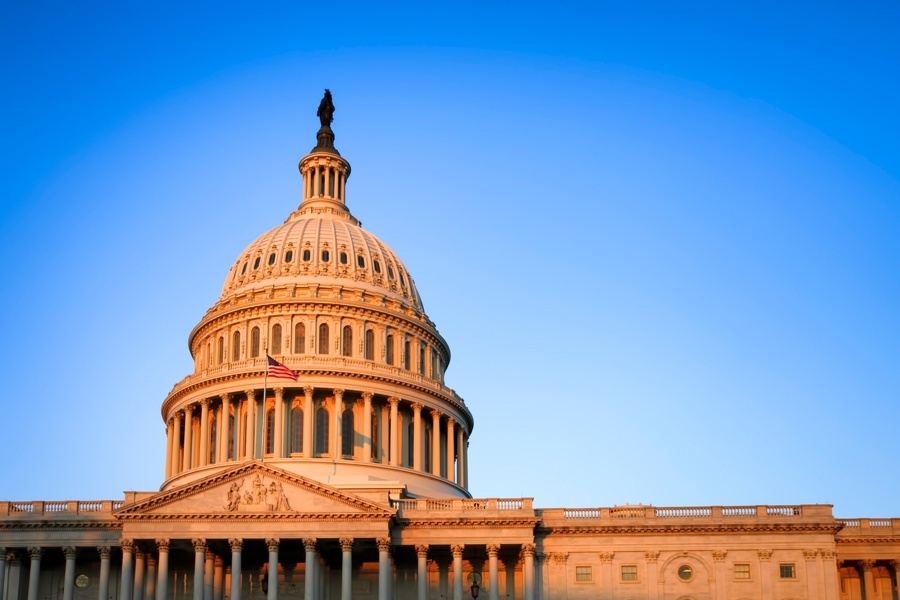

House legislation to fund the Department of Labor contains provisions to kill the agency’s proposal to raise investment advice standards for retirement accounts, but the effort to scuttle the regulation faces strong opposition from Democrats.
While the financial industry is trying to stop the proposal through the legislative process, it also has tried to slow it down by asking DOL for an extension on the public comment period, which is set to end Jan. 2. The agency denied that request Tuesday.
On Tuesday night, the House approved by voice vote three amendments to an appropriations bill that would prevent funding for the DOL to finalize, implement or enforce the retirement security proposal it released last month. The $196 billion bill would set spending levels for the DOL, the Department of Health and Human Services and other agencies.
The House postponed further consideration of the spending bill Wednesday morning and is now in recess until after Thanksgiving. It’s not clear whether Republicans, who control the House, 221-212, have enough votes to approve the bill.
Although the provisions to kill the DOL proposal were approved by voice vote, House and Senate Democrats, as well as the Biden administration, made clear that they’re opposed to so-called policy riders.
In a statement indicating that President Biden would veto the funding bill, the White House cited parts of the measure that would prevent the DOL from using funds to provide “critical protections” for retirement plans.
Other signs of Democratic resistance to riders emerged when the House approved a bill Tuesday night to fund the government into early 2024 and avert a shutdown when funding expires at the end of the day Friday.
The House approved the bill, 336-95, with most Democrats in support. They voted in favor in part because it did not contain any riders. Senate Majority Leader Chuck Schumer, D-N.Y., praised the bill for avoiding riders.
As the Republican House and Democratic Senate work to reach an agreement to fund the government through the entire fiscal year, it likely will be difficult for policy riders to survive the legislative process given the Democratic opposition.
Rosa DeLauro, D-Conn. and ranking member of the House Appropriations Committee, took aim at policy riders when she outlined the parameters for a final government funding bill.
“That means no new poison-pill riders,” she said Tuesday on the House floor.
The DOL proposal would hold most financial advice to retirement savers to a fiduciary standard — including a one-time recommendation to roll over funds from a company plan to an individual retirement account — regardless of whether the investor is working with an investment advisor, broker or insurance professional.
The Biden administration says the proposal aims to curb financial advisors’ conflicts of interest that lead to high fees — or junk fees — that diminish nest eggs. Financial industry opponents say it will sharply raise regulatory costs and increase legal exposure for advisors, which will make them less likely to work with low- and middle-income retirement savers.
Halting regulatory proposals through legislation often fails.
“Enacting policy riders in a divided Congress is always challenging, but we support members of Congress taking steps to stop the Biden Administration’s unnecessary and redundant fiduciary rule,” Dan Zielinski, spokesperson for the Insured Retirement Institute, wrote in an email. “We will continue to advocate for its withdrawal.”
The industry’s effort to extend the comment period by at least 60 days was turned back by the DOL, which kept the Jan. 2 deadline. The agency also scheduled a hearing about the proposal for Dec. 12.
The DOL “believes that its current proposal reflects significant input it has received from public engagement with this project since 2010, and looks forward to another robust comment period, public hearing, vigorous public debate, and stakeholder meetings,” Lisa Gomez, DOL assistant secretary and head of the Employee Benefits Retirement Administration, wrote in a Nov. 14 letter to the Securities Industry and Financial Markets Association.
The House floor debate over the amendments to kill the DOL proposal featured lawmakers arguing for and against the proposal in ways that echo the points made by the financial industry and the Biden administration.
Rep. Ann Wagner, R-Mo., said the proposal would raise costs for brokers and limit financial advice for low- and middle-income Americans.
“We would be left with two classes of investors — those who can afford investment advice and those who cannot,” Wagner said.
DeLauro said conflicted recommendations to purchase fixed index annuities cost investors $5 billion annually.
“Plain and simple, those are a form of junk fees that can erode the retirement savings of hard-working American families,” she said.

Relationships are key to our business but advisors are often slow to engage in specific activities designed to foster them.

Whichever path you go down, act now while you're still in control.

Pro-bitcoin professionals, however, say the cryptocurrency has ushered in change.

“LPL has evolved significantly over the last decade and still wants to scale up,” says one industry executive.

Survey findings from the Nationwide Retirement Institute offers pearls of planning wisdom from 60- to 65-year-olds, as well as insights into concerns.
Streamline your outreach with Aidentified's AI-driven solutions
This season’s market volatility: Positioning for rate relief, income growth and the AI rebound
